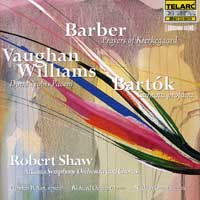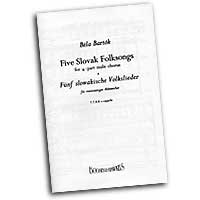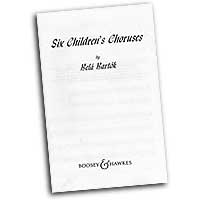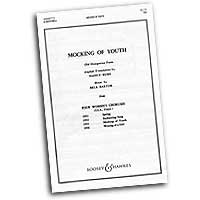
Béla Bartók



Béla Bartók (March 25, 1881-September 26, 1945), the greatest Hungarian composer, was one of the most significant musicians of the twentieth century. He shared with his friend Zoltán Kodály, another leading Hungarian composer, a passion for ethnomusicology. His music was invigorated by the themes, modes, and rhythmic patterns of the Hungarian and other folk music traditions he studied, which he synthesized with influences from his contemporaries into his own distinctive style.
In 1904, while staying in the Slovakian countryside in order to practice and compose, Bartók overheard Lidi Dósa, a Székely Hungarian woman from Transylvania, sing the song Piros alma ("Red Apple"). He then interviewed her to find out what other songs she knew. This encounter was the beginning of Bartók's lifetime fascination with folk music. Two years later Bartók was introduced to Kodály, who soon became his closest friend. Kodály had already begun to collect recordings of Hungarian folk music using an Edison cylinder. Bartók began his collecting in Hungary's Békés County in 1906.
Unlike Kodály, Bartók also became interested in other folk traditions, studying the folk music of Romanians, Slovakians, Serbs, Croatians, Bulgarians, Turks, and North Africans as well as Hungarians. In 1906, while visiting Algeria, Bartók had a vision of how he might begin to order scattered folk tunes of the world. This, as he recalled, ended any desire on his part for the kind of career others had projected for him, as "the future master of the most charming salon music." Afterwards, the main task of his life was to collect, analyze, and catalogue major portions of the world's folk music.
In 1909 Bartók married Márta Ziegler. Their son, Béla Jr., was born in 1910. In the presence of his son Bartók declared his conversion to Unitarianism on July 25, 1916, and joined the Mission House Congregation of the Unitarian Church in Budapest in 1917. Formal church affiliation enhanced Bartók's prospects for additional employment and enabled his son to avoid otherwise mandatory Catholic religious instruction. Father and son attended the Unitarian Church regularly. Bartók was briefly the chair of a music committee, but was not a success in this role. He had strict and conservative ideas about church music and would have forbidden the use of any instruments other than an organ.
Bartók did not like the fascist régime that governed Hungary during the inter-war period. In 1919 he and Kodály were temporarily suspended from their Academy posts for political reasons. In the 1930s Bartók refused to perform or to have his works broadcast in Nazi Germany or Fascist Italy. He even largely avoided playing in Budapest. In 1931 he went to the French Embassy to accept the Légion d'honneur but, when awarded the Corvin Medal that same year, stayed away from the award ceremony because he would have had to accept it from the hand of Hungary's dictator, Admiral Horthy.
Much of the music for which Bartók is remembered was written in the 1930s, often in response to commissions from abroad. He wrote his fifth string quartet, 1934, for the American Elisabeth Sprague Coolidge. For the Swiss conductor Paul Sacher he composed Music for Strings, Percussion, and Celesta, 1936, the Sonata for Two Pianos and Percussion, 1937, and Divertimento, 1939. Clarinetist Benny Goodman commissioned Contrasts, for clarinet, violin, and piano, 1938. Two other major works of this period were a violin concerto, 1938, and the last string quartet, 1939.
As the European political situation worsened, Bartók was increasingly tempted to flee Hungary. Having first sent his manuscripts out of the country, in 1940 Bartók sailed for America with his wife. Péter Bartók joined them in 1942 and later enlisted in the United States Navy. Béla Bartók, Jr. remained in Hungary. Although he became an American citizen in 1945, Bartók thought of his stay in the U.S. less as emigration than exile. One attraction of the U.S. for him was the opportunity to study a collection of Serbo-Croatian folk music at Columbia University in New York City.
There are reports that the Bartóks lived in abject poverty during their New York years. Although this is not strictly true, they did live in obscurity and were by no means comfortably well-off. When Bartók became ill with leukemia, the American Society for Composers, Authors, and Publishers (ASCAP) paid his medical expenses and helped him to get better treatment. To ease Bartók's financial burden the conductor Fritz Reiner and violinist József Szigeti convinced the conductor Serge Koussevitzky to have his foundation commission an orchestral piece from Bartók. The result was Concerto for Orchestra, 1943, Bartók's most popular piece. In 1944 he composed a sonata for solo violin, written for Yehudi Menuhin. Bartók's last two major works, a third piano concerto, which includes bird calls and sounds of nature, and a viola concerto, both left unfinished at his death, were completed by his Hungarian colleague, Tibor Serly. These late pieces caught the spirit of the times. One 1946 review claimed "the music of Bartók ennobles all of music. And the contemporary world will soon be proud to say, 'We lived in the time of Bartók.'" Many of his works entered and have remained in the orchestral and chamber repertoires.
On September 26, 1945, Bartók died in a New York hospital with his wife Ditta and his son Péter each holding one of his hands. The funeral was conducted by Rev. Laurence I. Neale, minister of New York's All Souls Unitarian Church. He was buried in Woodlawn Cemetery in New York. In 1988, as the "iron curtain" separating Eastern Europe from the West was being lifted, Béla Bartók, Jr., then lay president of the Hungarian Unitarian Church, was able to have his father's remains transferred to Budapest. A statue of Bartók stands in front of the Second Unitarian Church in Budapest.
 |
Spring Don't leave me here Spell Letter to those at home Play song Courting Hawk Don't leave me! I have a ring I have no one in the world Breadbaking Hussar Loaferss' song Wandering Girls' teasing song Boys' teasing song Michaelmas greetings Suitor Grief Bird song Jeering Regret Had I not seen you The bird flew away Cushion dance Canon God be with you! |
Hungarian composer Bela Bartok wrote these 27 a cappella pieces for children's and women's choirs in an energetic burst in 1935-36, sandwiched in between outstanding accompanied works such as "String Quartet No. 5" and "Music for Strings, Percussion and Celesta." These songs are all sung in Hungarian by the delightful Schola Hungarica and are all less than 3 minutes in length. Some favorites, "Spring," "Letter to those at home," "Play Song," "Courting," the joyous "I have a ring," "Breadbaking," "Hussar," "Boys' Teasing Song," "Michaelmas greetings," "Suitor," "Bird Song," "Jeering," "Regret," "Cushion dance" and "God be with you!" Alternately sweet, celebratory, sad, focused on the task at hand, and many other expressions of the thoughts and emotions of youth, this is a remarkable and touching collection by an inspired master Hungarian composer. Complete lyrics and translations in the extensive liner notes.
| 7546 CD $15.98 |
 |
Spring Don't leave me here Spell Letter to those at home Play song Courting Hawk Don't leave me! I have a ring I have no one in the world Breadbaking Hussar Loaferss' song Wandering Girls' teasing song Boys' teasing song Michaelmas greetings Suitor Grief Bird song Jeering Regret Had I not seen you The bird flew away Cushion dance Canon God be with you! |
Barber's Prayers of Kierkegaard was commissioned by the Koussevitsky Foundation in 1942, but the composer did not complete the work until January, 1954. It is a setting, in the form of a single-movement cantata, of four prayers by the Danish theologian and philosopher Søren Kierkegaard (1813-1855). Robert Shaw gave the American premiere of Bartók's Cantata Profana at Carnegie Hall in 1952. For this recording, he has used a refined version of the English translation of the text he made for that premiere performance. Vaughan Williams's Dona Nobis Pacem was intended as a warning of the threat of war in Europe in the mid-1930s. The texts are taken from the poetry of Walt Whitman, the Bible, the Latin Mass, and from a speech made in the British House of Commons during the Crimean War in the 1850s by John Bright.
| 6236 CD $15.98 |
 |
5 Slovak Folksong SATB
|
 |
Hussar (SA) The original version of these choruses was an a cappella version; later an orchestral accompaniment was added. The piano reduction of the latter has merely been added to the present edition for rehearsal purposes when preparing the choir for a performance with orchestra. it is the composer's intention that performances should talk place either a cappella or with orchestra, but not with piano.
|
 |
Spring SSA |
"Many people think it is a comparatively easy task to write a composition on found folk tunes... This way of thinking is completely erroneous. To handle folk tunes is one of the most difficult tasks; equally difficult, if not more so, than to write a major original composition. If we keep in mind that borrowing a tune means being bound by its individual peculiarity, we shall understand one part of the difficulty. Another is created by the special character of folk tune. We must penetrate it, feel it, and bring out its sharp contours by the appropriate setting... It must be a work of inspiration just as much as any other composition." - Bela Bartok
| 9270 SHEET MUSIC $6.50 |
![]() Choral - Home | Mens Choral | Womens Choral | Mixed Choirs | Early Music
Choral - Home | Mens Choral | Womens Choral | Mixed Choirs | Early Music
Childrens Choir | Boys Choirs | Girls Choirs | Choral arrangements | Choral Christmas | Director's resources
African | English | Canadian | Bulgarian | Estonian | Hungarian | Scandinavian | Russian | Latin American
Spirituals | Madrigals | Budget Choral titles | DVDs | Complete choral list
![]() RSS Feed - Choral New Releases
RSS Feed - Choral New Releases
Vocal Jazz | Doo Wop | Contemporary | Barbershop | Christian | Collegiate | World | Choral
Patriotic | The Groups | The Directors | The Vocal Coaches | Choral Development
Arrangements | Vintage Harmony | Christmas | DVDs | Instructional for Singers
The Harmony Sweepstakes A Cappella Festival
![]() RSS - New Releases
RSS - New Releases
Site Map | A Cappella News | Regional Newsgroups | RSS a cappella feeds
To find a specific song on any recording (or to find recordings by group name or CD title),
pick the search method and type the item you are searching for here:

All Rights Reserved All Content, page design, CGI Copyright © United Singers International